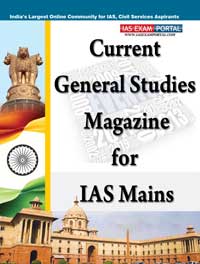
Current General Studies Magazine (August 2016)
General Studies - III "Science and Technology Based Article" (Data Route to Transparency)
The rise of the regulatory state in India in the past couple of decades has resulted in an explosion of information that governance bodies at all levels have to grapple with. Apart from the traditional channels of information supply, such as property and land records, population data, geographical information, social welfare schemes and the like, corporate compliance requirements with the different branches of the state have led to newer sources of data including under the securities laws, banking and finance regulations, intellectual property and competition legislation, and corporate social responsibility compliance. The information architecture to preserve and access this data currently resides in a set of disparate ledgers, books and databases. This allows the government — as with the coalgate scam — and private actors — as with Kingfisher’s recent claims on its account books — to conveniently hide behind “missing files”. The relative ease with which this information can be altered or manipulated leads to a lack of trust in government and private actor records. The centralised control over information governance — meant to infuse trust into the system — normally results in blocking access to important data and cluttering real-time decision-making.















